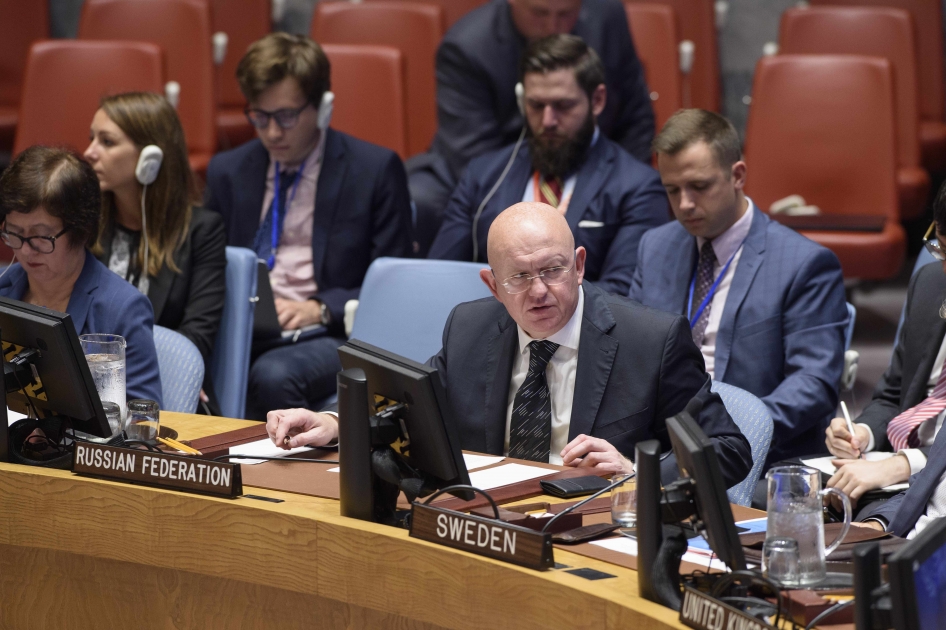Statement by Ambassador Vassily A. Nebenzia, Permanent Representative of the Russian Federation to the United Nations, at the Security Council meeting on the situation in Yemen
We thank the United Kingdom for convening today’s meeting.
We also thank Mr. Martin Griffiths, Special Envoy of the Secretary-General for Yemen, for his detailed briefing on the work with the parties to the Yemeni conflict, including within the framework of the latest consultations in Geneva. Russia supported and contributed to achieving the initiative of the Special Envoy and launching the negotiation process.
We believe that this is very much needed and is a unique opportunity to end the bloody conflict. We did not expect that it would be easy or perhaps even possible to move the Yemeni conflict to the political sphere.
We believe that the process has been launched and must now be built upon. We pin our hopes on Mr. Griffiths convincing the parties that they need to continue the political process in the framework of shuttle diplomacy and to make them aware that a military solution is not viable and has no future. It is important that he maintain open channels of communication with all key players.
We consider that the support of his mediation mission, along with the absence of attacks and missile launches, will contribute to maintaining a calm situation around Al-Hudaydah. Everyone must demonstrate restraint and not try to resolve the situation by force. Developing confidence-building measures, including the release of prisoners and detainees is necessary.
We would like to add that it is important to unify the efforts of all Yemenis in combating terrorism on the Arabian peninsula, which has taken on a threatening scale. We believe that the potential for collective international support for the efforts of the Special Envoy has not been fully utilized. In our view, what is needed is an effective, balanced and focused format of support for the efforts of the United Nations. It is critical that the format operate on an integrated basis.
We would like to underline that finding solutions to the Yemeni conflict will be an important contribution to stability in the entire subregion. We wish to remind the Council of our proposals to launch — in the Persian Gulf and, in the long-run, in the whole Middle East — a process of developing a package of security- and confidence-building measures.
That kind of architecture, in which all key countries of the region should participate, including the Persian Gulf States and Iran, would contribute not only to strengthening comprehensive and indivisible security in that part of the world, but also resolving long-standing and newer crisis situations, including the Yemeni conflict.
Threats and confrontations should cede place to dialogue to dialogue and cooperation. Russia will continue, in consultation with all interested parties, its efforts aimed at implementing the Russian concept of security and cooperation in the Persian Gulf. We believe that it is timely and necessary.
In conclusion, we call on all parties involved in the Yemeni conflict to actively participate in the mediation efforts of Mr. Griffiths. There is no military solution to the Yemeni crisis. For our part, we will continue to support the work of the Special Envoy, alongside all of the parties to the Yemeni confrontation.
